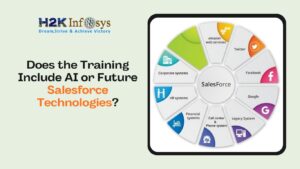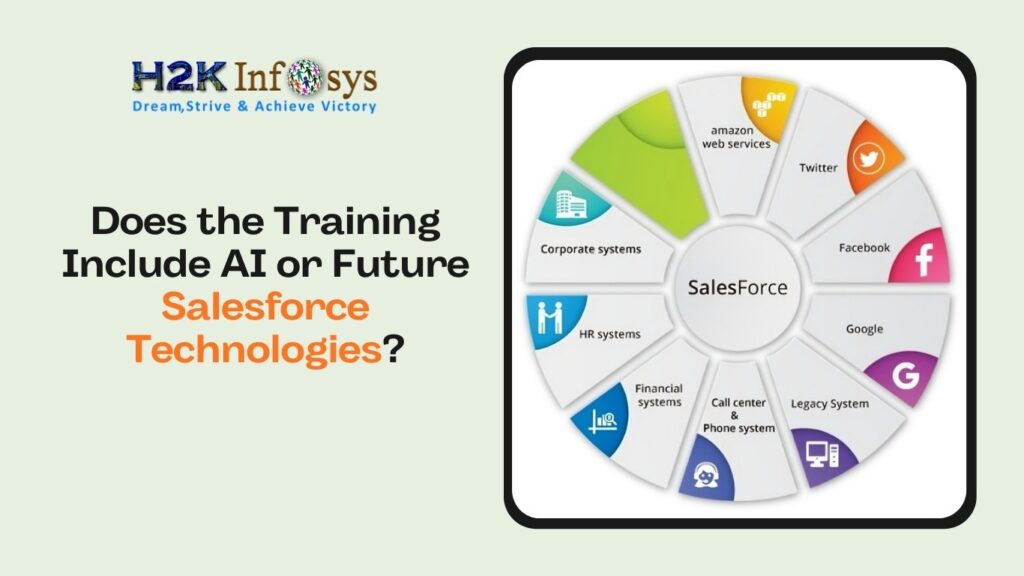In today’s data-driven world, two roles dominate business intelligence and decision-making Business Analyst vs Data Analyst. Both positions use data to drive strategy, but their focus, skill sets, and career paths differ significantly. If you are planning to enroll in a business analyst course or considering Business Analyst Online Training, understanding these differences will help you choose the right career direction.
Why Business Analyst vs Data Analyst Is a Crucial Career Decision
As organizations embrace digital transformation, professionals skilled in data interpretation and business process improvement have become indispensable. Choosing between Business Analyst vs Data Analyst can define your future in analytics and business strategy.
A Business Analyst bridges the gap between IT teams and business needs, focusing on improving processes and delivering value. A Data Analyst, on the other hand, dives deep into datasets to extract insights that support informed decision-making. Both roles are vital but they require distinct mindsets, skills, and tools.
Understanding the Business Analyst Role
A Business Analyst (BA) acts as the connector between business objectives and technical solutions. They work closely with stakeholders to identify problems, gather requirements, and ensure that the final solution aligns with business goals.
Key Responsibilities
- Identify business needs and opportunities for process improvement.
- Conduct stakeholder interviews to gather requirements.
- Translate business requirements into technical documentation.
- Support implementation of new systems or processes.
- Ensure that the delivered solution meets business expectations.
Core Skills
- Strong communication and documentation skills.
- Knowledge of modeling tools like UML and BPMN.
- Understanding of project management methodologies such as Agile and Scrum.
- Analytical thinking and problem-solving ability.
- Familiarity with SQL or data visualization tools like Power BI or Tableau.
If you are planning to master these skills, enrolling in a business analyst course can give you structured learning, hands-on projects, and mentorship.
Understanding the Data Analyst Role
A Data Analyst focuses on extracting actionable insights from data. They transform raw data into meaningful reports that drive decision-making and help businesses optimize performance.
Key Responsibilities
- Collect, clean, and organize data from various sources.
- Perform data analysis to uncover trends, patterns, and correlations.
- Build dashboards and visualizations for stakeholders.
- Provide data-backed recommendations to guide business decisions.
- Collaborate with Business Analysts and data scientists for deeper analysis.
Core Skills
- Proficiency in SQL, Python, or R for data manipulation.
- Strong command of Excel and data visualization tools.
- Ability to perform statistical analysis and data modeling.
- Knowledge of ETL processes and database management.
- Problem-solving and critical thinking.
Data analysts are the storytellers of numbers they ensure businesses make evidence-based decisions.
Business Analyst vs Data Analyst: A Side-by-Side Comparison
| Aspect | Business Analyst | Data Analyst |
|---|---|---|
| Primary Focus | Business strategy and process improvement | Data collection, cleaning, and analysis |
| Main Goal | Optimize operations and align business goals | Extract insights from data to support decisions |
| Core Tools | Jira, Visio, Excel, Power BI | SQL, Python, R, Power BI, Tableau |
| Collaboration | Works with stakeholders, managers, and developers | Works with datasets, IT teams, and analysts |
| Deliverables | Business requirements, reports, workflows | Dashboards, data reports, insights |
| Outcome | Improved business efficiency | Data-driven decision-making |
Understanding this Business Analyst vs Data Analyst comparison can help you evaluate which path aligns better with your strengths and interests.
Educational Path and Certifications
Both career paths require foundational skills in analytics, communication, and technology but they diverge when it comes to specialization.
For Business Analysts
- Start with a Business Analyst Online Training program.
- Earn a ba certification to validate your expertise.
- Learn project management and Agile methodologies.
- Focus on documentation, stakeholder management, and requirements gathering.
For Data Analysts
- Begin with data analytics fundamentals.
- Gain hands-on experience with SQL, Python, and visualization tools.
- Pursue certifications in data analysis or business intelligence.
- Practice real-world projects to build your portfolio.
Choosing the right business analyst training and placement program can give you both analytical and business exposure essential for long-term growth.
Tools You’ll Use: Business Analyst vs Data Analyst
Business Analysts Commonly Use:
- Microsoft Excel: For requirement tracking and analysis.
- Microsoft Visio or Lucidchart: To create workflow diagrams.
- JIRA/Confluence: For project management and collaboration.
- Power BI/Tableau: For visual presentations to stakeholders.
Data Analysts Commonly Use:
- SQL: To extract and manipulate datasets.
- Python/R: For statistical analysis and automation.
- Excel: For quick data analysis and pivot tables.
- Tableau/Power BI: For dashboard creation and visualization.
Understanding these toolsets clarifies how distinct yet complementary both roles are.
Career Growth: Business Analyst vs Data Analyst

Business Analyst Career Path
- Junior Business Analyst → 2. Business Analyst → 3. Senior Business Analyst → 4. Business Consultant → 5. Product Manager or Project Manager
Business Analysts often move into leadership or strategic roles as they gain experience in business processes and stakeholder management.
Data Analyst Career Path
- Junior Data Analyst → 2. Data Analyst → 3. Senior Data Analyst → 4. Data Scientist → 5. Data Engineer or Analytics Manager
Data Analysts progress toward technical or scientific roles as they deepen their statistical and programming expertise.
Salary Insights: Business Analyst vs Data Analyst
According to U.S. labor data, salaries vary based on experience and industry:
| Role | Entry-Level | Mid-Level | Senior-Level |
|---|---|---|---|
| Business Analyst | $65,000 – $80,000 | $85,000 – $105,000 | $110,000 – $130,000+ |
| Data Analyst | $60,000 – $75,000 | $80,000 – $100,000 | $110,000 – $140,000+ |
Both career paths are lucrative, with excellent upward mobility. However, the right choice depends on whether you prefer business strategy or data analytics as your main focus.
Real-World Scenarios: Business Analyst vs Data Analyst in Action
Let’s look at an example:
A retail company wants to improve customer satisfaction and increase sales.
- The Data Analyst examines transaction data, identifies buying trends, and highlights areas of declining sales.
- The Business Analyst uses these insights to propose strategic changes, such as optimizing inventory or introducing loyalty programs.
Together, both roles drive transformation data guides the strategy, and business analysis ensures it’s executed effectively.
Skills That Overlap
Despite their distinct focuses, Business Analyst vs Data Analyst roles share certain skills:
- Data-driven mindset
- Strong problem-solving capabilities
- Communication and collaboration
- Understanding of databases and visualization tools
- Analytical thinking and curiosity
These shared skills make transitioning between the two roles possible with proper upskilling and training.
Industry Demand for Business Analyst vs Data Analyst
In 2025 and beyond, both roles will continue to see high demand. Organizations need Business Analysts to navigate digital transformation and Data Analysts to harness the power of big data.
Key Industries Hiring Both Roles:
- Finance and Banking – for risk analysis and strategic planning
- Healthcare – for patient data management and process improvement
- E-commerce – for consumer trend analysis and process automation
- Information Technology – for software, systems, and data-driven projects
Whether you choose a Business Analyst vs Data Analyst path, the opportunities are abundant.
How to Choose Between Business Analyst vs Data Analyst
Ask yourself the following questions:
- Do you enjoy communicating with stakeholders and designing solutions? → You may prefer Business Analyst.
- Do you love working with data and solving numerical problems? → You may fit the Data Analyst path.
If you enjoy both, a Business Analyst Online Training program with data analytics modules offers the best of both worlds.
Future Trends Shaping Both Roles

- AI-Powered Analytics: Data Analysts are now using AI and ML to automate insight generation.
- Agile and Hybrid Projects: Business Analysts are adapting to rapid delivery models.
- Cloud Data Tools: Both roles increasingly use cloud-based platforms for data management.
- Cross-Functional Collaboration: The line between Business Analyst vs Data Analyst continues to blur in modern organizations.
These trends highlight the evolving nature of analytics-driven careers and emphasize the importance of ongoing learning and ba certification.
Key Takeaways
- Business Analyst vs Data Analyst roles share a common goal help businesses make smarter decisions.
- Business Analysts focus on why and how a solution benefits the organization.
- Data Analysts focus on what the data reveals about business performance.
- Both roles offer excellent salary growth and long-term career stability.
- A well-structured business analyst course or business analyst training and placement program can help you launch your career confidently.
Conclusion: Take the Next Step with H2K Infosys
Whether your interest lies in Business Analyst vs Data Analyst, both paths promise rewarding opportunities. If you aim to build real-world analytical and business skills, H2K Infosys offers industry-recognized Business Analyst Online Training and ba certification programs designed for your career growth.
Take the next step today enroll with H2K Infosys and become job-ready for the analytical future.


























